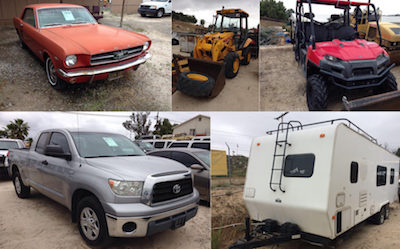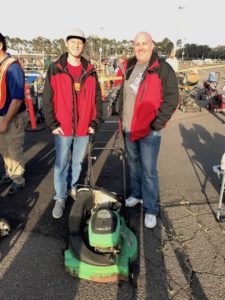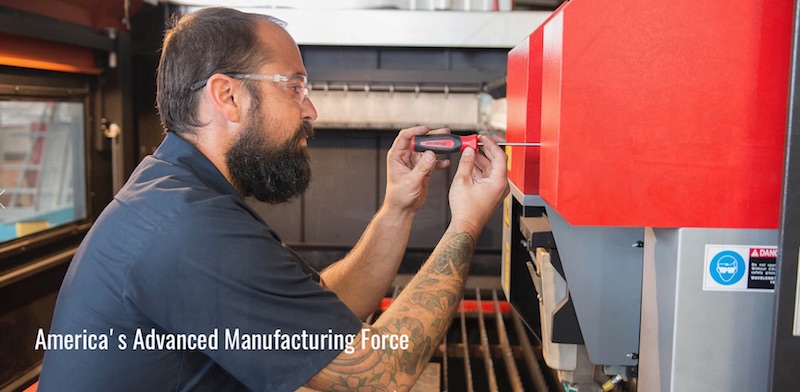Daily Business Report-May 15, 2017
Image by Speedkingz via Shutterstock
Amid the housing crisis, why 2 out of 5 young Californians still live with their parents
By Matt Levin | CALmatters
State lawmakers have introduced more than 130 bills this legislative session to try to solve California’s housing affordability crisis, proposing everything from more 150 square-foot apartments to a $3 billion affordable housing bond.
But while many see the flurry of political activity as an encouraging sign, for millions of younger Californians, all the talk of infill development, CEQA-reform and developer fees can be reduced to one simple question:
Will any of this stuff finally help me move out of my parents’ place?
Nearly a decade removed from the depths of the Great Recession, a staggering 38 percent of California’s 18 to 34-year-olds still live with their parents, according to U.S. Census data. That’s roughly 3.6 million people stuck at home. Think of it this way: If “unlaunched” California millennials formed their own state, they would be entitled to more electoral votes than Connecticut, Iowa or Utah. If they formed their own city, it would be the third largest in the country.
And the trend appears to have accelerated over the past few years. Many researchers expected that so-called “boomerangers” of the recession would flee their parents’ domiciles once the economy recovered and the labor market started roaring again.
But California has its lowest unemployment rate since 2007, and millennials still aren’t moving out.
“I would have thought and did think for a long time that as the labor market got better, more young adults would get jobs and the share of them living with their parents would start declining,” says Richard Fry, a senior researcher at the Pew Research Center. “But I’m increasingly thinking this is not a cyclical phenomenon.”
So what exactly is keeping California’s millennials from breaking free of their parents? Part of the explanation is intuitive–California’s skyrocketing housing costs. But digging deeper into who exactly these stay-at-homers are, and how they’re different from younger adults from previous generations, shows other forces are also at play.
______________________
Turner Construction breaks ground on Intrepid Spirit Center project at Camp Pendleton
Turner Construction Company has broken ground on the Intrepid Spirit Center project at the Marine Corps Base Camp Pendleton.
The groundbreaking took place May 9 in a ceremony with representatives from The Intrepid Fallen Heroes Fund (IFHF), and the Naval Hospital at Camp Pendleton. The facility will be the seventh in a series of nine centers located at military bases around the country built by the IFHF.
The Intrepid Spirit Center in San Diego will consist of a 25,000-square-foot treatment facility on San Jacinto Road near the intersection with Wire Mountain Road. The project has been designed by SmithGroupJJR, and is scheduled to be complete in March 2018. Initial site work, parking lots and roadways will be completed by Naval Facilities Engineering Command.
The Intrepid Fallen Heroes Fund is a national leader in supporting the men and women of the United States Armed Forces and their families. The organization has provided close to $200 million in support for the families of military personnel lost in service to our nation, as well as for severely wounded military personnel and veterans.
______________________

Bidding starts today for county’s vehicle auction
Bidding begins today for the county’s next vehicle auction where dozens of vehicles ranging from Ford Crown Victorias, Ford Escapes, Ford trucks and a Toyota Tundra are available.
Some not-so-typical vehicles are up for bid, too: a remote-controlled car; parts for a ’65 Ford Mustang; an off-road vehicle; a sweeper. Box trucks and school buses are also up for grabs.
The surplus vehicles and government property come from the county and other local agencies. Bids start at only $100.
You can register for the auction online starting today. The auction closes at 1 p.m. on Monday, May 22.
If you’d like to check out the vehicles in person, stop by 369 Main St. in Ramona from 9 a.m. to 5 p.m. on Friday, May 19. Another preview takes place 8 a.m. to noon on Monday, May 22.
For more information, an auction catalog and photos of many of the items up for auction, visit TNT Public Auction.
______________________
More than 400 gasoline-powered lawn mowers headed to the scrap heap in exchange program

David Rowe and his son, Tyler, were first in line Saturday at the 18th annual Mowing Down Pollution lawnmower exchange program at Qualcomm Stadium, arriving at 4 a.m.
When the program ended at noon, a total of 626 pieces of yard equipment had been exchanged. The biggest sellers, at $99.99 each, were the lawnmowers. The exchange of 475 mowers brought to 8,909 the number of rechargeable mowers put into the hands of San Diegans, with an equal number of gasoline powered motors junked and turned into scrap.
Of the smaller pieces of yard equipment available for $79.99 with the exchange of a gasoline-powered counterpart, the string trimmers were a sellout, with all 100 claimed in an exchange. San Diegans also went home with 10 rechargeable hedge trimmers and 41 rechargeable chain saws.
The program, initiated by county Supervisor Ron Roberts, aims to reduce pollution and greenhouse gas emissions by having residents switch from gasoline-powered garden equipment to rechargeable electric equipment.
Gas-powered machines emit an average of about 10 pounds of air pollution per year, according to Robert Kard of the San Diego County Air Pollution Control District which oversees the annual exchange. The new, upgraded models emit zero pollution.
______________________
Personnel Announcements
Jim Kelley joins Regents Bank as senior vice president

Regents Bank hired longtime San Diego banker and business executive Jim Kelley as senior vice president/senior relationship manager. Kelley will work from Regents Bank’s Escondido office.
Kelley brings over 30 years of commercial banking and business development experience, with an extensive background in commercial, small business administration (SBA) and real estate lending.
He has worked for several commercial banks in San Diego in many capacities, including as president/CEO of Discovery Bank from 2000 to 2007. Kelley most recently served as senior vice president/group manager at Comerica Bank.
Kelley previously served as CFO for both the sports cards and memorabilia company Upper Deck and the computer cable manufacturer C Enterprises —both headquartered in San Diego.
Kelley resides in Vista. He earned his bachelor’s degree from San Diego State University and received his executive MBA from Pacific Coast Banking School in Washington.


